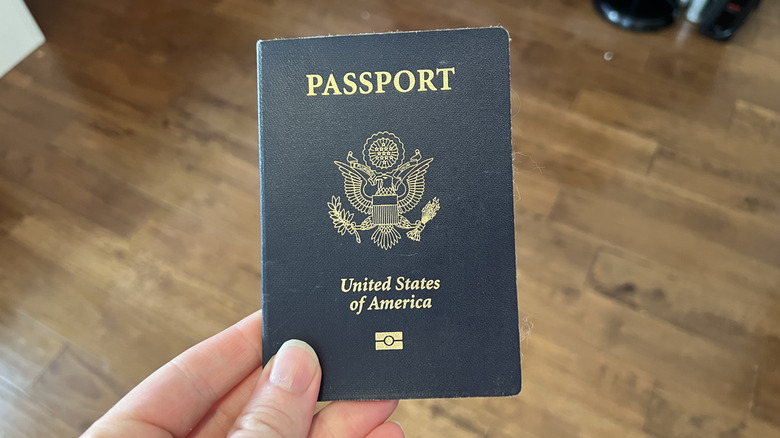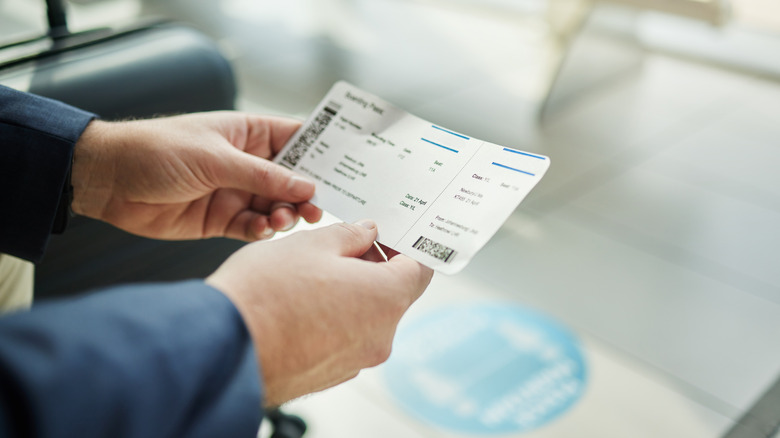Your Old Travel Documents Are A Security Risk: Here's What To Do With Them
We may receive a commission on purchases made from links.
When you're planning an overseas trip, you may leave yourself reminders to ensure you've packed your passport, and you'll want to make sure to print your boarding pass at the airport. You may own a travel document holder to keep everything together, and, if you're extra prepared, you may even have images of all your documents stored in a password-protected folder in case they get lost or stolen. That's all great, but one thing you may not have considered is what to do with those documents after you return home from your trip. However, it's vital that you do because your old travel documents are a security risk.
You should keep your current passport in a secure place, but what about ones that have expired? Your old passport will be returned to you if you mail it in to renew, and if you do it online, you may not have to send it in at all. That means you might have at least one old passport in your house. Remember: Never get rid of your old passports. First, it's important to note that if you have an existing visa that is attached to the old or expired passport, you need to keep it and bring that and your new passport when you travel. Second, this document has lots of information about you, including where you've traveled and when. If it falls into the wrong hands, it can give scammers and identity thieves plenty of private details to work with.
How to protect your old travel documents
In addition to revealing your travel history, an old passport can also prove your citizenship and has your photo. Keeping all of this information private is important, as is keeping it for your records. Storing old travel documents in a fireproof safe in your home, like the SentrySafe Fireproof Money Safe with Key Lock for less than $30 on Amazon, isn't a bad idea. You can also use a safe deposit box.
Of course, it isn't just your passport that you need to keep track of this way. It's also dangerous to throw away your old boarding passes. These passes have a barcode or QR code that can be scanned to find information like your legal name, even if you go by something else every day. It also has your six-digit passenger name record (PNR), which you use to log in to the airline's website and check in for your flight. If someone else logs in with that information, they have access to your email, your phone number, and other information, like your Known Traveler Number if you have one. Hold on to your boarding pass after you travel, just in case, or shred or black it out before tossing it in the trash. Another thing to avoid is posting any of your travel documents — including that boarding pass — on social media. It's never a good idea to let the world know when you're out of town. In fact, you may want to post your trip pictures after you return for the same reason. Better safe than sorry.

